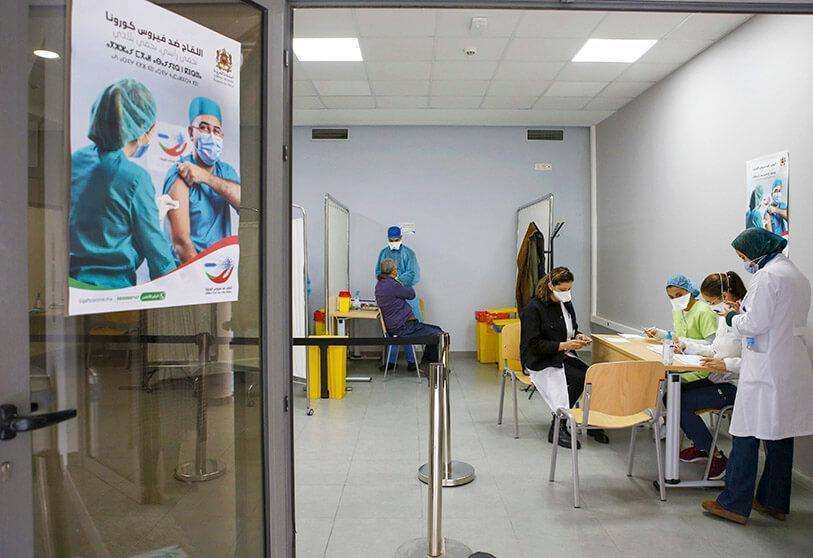Global concern over a new Covid-19 mutation

Scientists in Great Britain have warned of a new variant of the Covid-19 virus, which could be a major threat to public health because of its large number of several "horrible" mutations.
Last Thursday, the British newspaper The Independent reported that scientists have named this mutation as B.1.1.529 or the Botswana variant, because the first detected case was diagnosed last November 11 in the Republic of Botswana, in southern Africa.
In addition, three confirmed cases have been detected in Botswana three days after the first case was detected, another six cases in South Africa and later, one case identified in Hong Kong.

However, this single case detected in Hong Kong came from a person who had recently traveled from South Africa, having tested negative before and after his travel, which could have led to a proliferation of infections through international travel, and more cases may have gone undetected.
Therefore, there are only 10 confirmed cases in the world so far, although experts believe that it could be more widespread.
This new variant of Covid-19 has been found to have at least 32 mutations, which are more easily adapted and therefore better able to evade immunity and vaccines.
According to experts, this "extremely high number" of mutations could lead to a higher number of infections of the disease, which could also reduce the effectiveness of vaccines.

According to Dr. Tom Peacock, who detected the spread and a virologist at Imperial College, reported on his Twitter account that "the export to Asia implies that this could be more widespread than the sequences alone would imply. In addition, the extremely long branch length and incredibly high number of mutations suggest that this could be a real concern (predicted escape of most known monoclonal antibodies)."
He further noted that the 32 mutations detected in the corona virus spike protein could be a "real concern" because they can easily bypass natural human immunity, thus spreading rapidly in people, since it is in that very protein that vaccines prime the immune system to be able to cope with the virus.
Peacock added that "this variant contains not one, but two mutations at the furin cleavage site: P681H (seen in Alpha, Mu, a little in Gamma, B.1.1.318) combined with N679K (seen in C.1.2 among others). This is the first time I have seen two of these mutations in a single variant."

He also expressed that this variant "should be monitored because of that horrible spike profile," "worse than almost anything else," including the current Delta strain with 16 mutations, although for now it does not seem to have many transmissions.
"It's worth emphasizing that this is in super low numbers at the moment in a region of Africa that is fairly well sampled, however, it should be monitored because of that horrible profile (I guess this would be worse antigenically than almost anything else)," Peacock added.
Cambridge University professor Ravi Gupta reported that "it seems a major concern" that two of the 32 mutations are more infectious than the original virus, while Lawrence Young, a virologist at Warwick Medical School, explained that this new variant would find it easy to evade Covid-19 vaccine immunity.

However, the director of the UCL Institute of Genetics, Francois Balloux, clarified that it is still difficult to predict the transmission range of the variant, and warned that there is "no reason to worry too much, unless it starts to increase in frequency in the near future".
They also noted that this new strain has been able to reduce antibody recognition in terms of vaccine efficacy.
The number of coronavirus cases has been increasing in South Africa, from 312 last Monday to more than 860 on Tuesday of the same week, although scientists explain that it is too early to detect any link with the new "supervariant".
Today, no new cases of the B.1.1.529 variant have been detected in the UK or other regions of the world.
However, several UK Health Safety Agency (UKHSA) officials and scientists reported that they were closely investigating this new variant.








